Very often as you learn tai chi chuan or qigong, you may feel as though you have reached a plateau. When this experience happens there often is a sense that practice is boring. The same stuff keeps on happening.
We all want to have tai chi practice breakthroughs moving to higher levels of sensitivity and awareness, but it is important to respect and even embrace the plateaus.
Tai Chi Integration
These plateaus in tai chi and qigong are actually necessary to your forward progress. You learn so much, you do so much. You’re inputting new information and it then needs time to fully input into your body. These times are essential for integrating your tai chi learning.
Additionally, as you input things into your body you are also inputting more information into your mind. But then like eating a meal, there has to be a point of digestion for what you have just eaten.
If the digestion of the food does not happen, you can’t really put any more food in. The way you make patte is that you keep stuffing food down a goose’s mouth until it explodes.
This is not a sustainable way to approach tai chi or any energy art.
Refining Tai Chi Movements
What occurs during these tai chi plateaus when you think things are boring is your body is absorbing everything it’s learned before. You are digesting the new tai chi movements and techniques. You are integrating them into your body and nervous system.
During a period of a practice plateau, it’s also very useful if you don’t try and put a lot more new material into your system. Just keep on working with what you already have learned. Focus on making what you have already learned better and better.
So everything that you have practiced, whether it’s moving chi or learning new body movements, practice to refine and hone it. This embeds the learning deeply into your system.
Tai Chi Breakthroughs
Now the experience is very often that you don’t feel like you’re making much of a refinement, but regardless of that, you should still keep on plugging at it. What happens at a certain point is that all of the sudden you break through the barrier. Everything that you were working on jumps to the next level.
This is how true tai chi mastery is developed. You reach a new plateau, stabilizing that level and then moving on to the next level.
This process is equally true for martial arts, dance, yoga and just about every movement form.
Rather than get frustrated, you can take a different approach and really go deep to refine and embody what you are working on. What you will find is that the more you do this, you’ll be able to learn tai chi or any movement form at a much higher level. Your form will improve dramatically.
Building an Internal Base Camp
It is quite mysterious and it’s quite unknown when exactly it’s going to happen when you practice an art form like tai chi.
So this is why very often you get periods where you feel as though for a month or two or three that you’re progressing forward quickly and then you go through a few months when you feel like you’re just covering the same ground and asking why isn’t anything new happening.
What you have to realize is you’re solidifying what you learned before in your tai chi practice. It is like you are building an internal base camp. Without that base, you can’t jump to the next level.
So I think this is an important point when you practice tai chi or qiong or any energy art.
I hope this will encourage you to stick with your practice during the plateaus, using them to make your tai chi form better.
I’d like to hear what you have to say about this and your experience – just leave a comment below.
Keep practicing,
Bruce

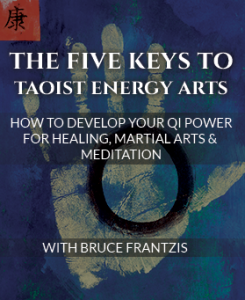
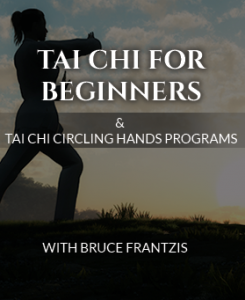
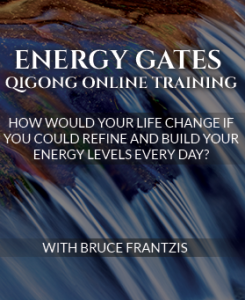

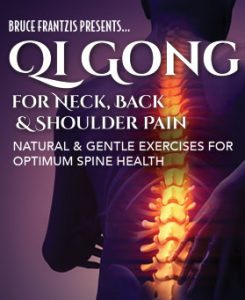
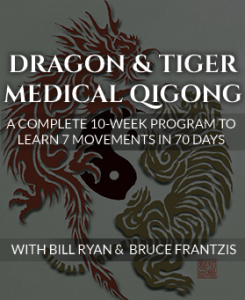
Great post Bruce.
I’ve been thinking about this a lot recently – in terms of my practice, and in terms of my life as a whole.
My question is – how do you tell the difference between a plateau and a rut?
That is, how do you know you’re not just going over the same old ground because there’s some unconscious internal blockage holding you back?
I often try to reflect back on how bad I was when starting out with the tai chi. That does seem to help in inspiring me to keep putting another foot forward. I walk everywhere (having gone car-free) and haven’t fallen on the ice this winter. Balance and body alignment continue to improve along with my reflexes (or maybe that’s concentration).
Enjoying the postings, Bruce. Very educational and inspirational.
Hey Bruce,
Thanks for the clarification on the sensation of feeling stuck and what it means. I do, however, have one question: when you feel like you are moving horizontally in your training instead of ascending towards the highest goal, what is best in your training? What exercises of the mind and body and soul must be practiced more thoroughly or is regular training with the same consistency the best approach?
Thanks,
Alex
Honored Teacher,
Often your posts hit just the right chord, where their truth is undeniable and their relevance reverberates strongly. Once again, your message comes at the right time and finds its place in my life. Thank you. It is our great good fortune that you so willingly share your knowledge.
Bruce,
From my experience, I believe the key word is perseverance. Tai Chi is a journey and perseverance is the road to success. To get on that road and stay on it one must incorporate Tai Chi into ones daily routine. Take a shower, brush your teeth, do your form etc. In other words to progress you must do it. Look for improvement out of the corner of your awareness and don’t concentrate intensely on any one thing except to keep going. If you read books don’t get bogged down by the esoteric terms just save them for later, because they will eventual confirm what you have achieved and you will get it – with an AH! I have also realized that if you persevere and really get into Tai Chi, it will get into you, and your awareness will show you that Tai Chi itself is the ultimate teacher and the teacher is your trusted guide.
Chip
I think part of the plateauing is psychological, in that as the student gains a deeper understanding of the art, he/she simultaneously becomes aware his or her own shortcomings. So the plateauing can be more perceived than actual, and they are actually moving farther ahead. As long as they can understand that this is a positive phase, not a negative one, there should be no reason for discouragement.
On so many days I’m pounding the nail and singing the CPL blues.–‘it ain’t no great tai chi, but it’s my tai chi’. And on other days, I turn, compress, rebound, and release–like a Yankee-Doodle-Dandy-Screwdriver. But for the last year or so, I’m showing up for work every single day, regardless–to pound the nail or turn the screw.
Dear Bruce Sifu,
I’ve been a student of Tai Chi since last 9 odd years. And my experience is exactly how you wrote…peaks, plateaus that seem like valleys (or were they valleys). I have struggled with weight-gain, lowering of my metabolism. My teacher had forewarned about the plateaus, but it doesn’t make them any less frustrating. But I do feel that I’m being able to get more sensitivity and better flow now than I was even 2 years ago. My teacher says that a lot of times we don’t “feel as much going on” because there’s less junk to clear and the learning is as you suggested, is much more subtle. I had terrible issues with the flow in my legs and off late that has been improving too…the bubbling wells feel more full than ever and I can feel the flow in legs through the forms much better now.
The most difficult part is to stay motivated to practice and I’ve slacked off a bit on and off…but I always seem to come back to practice (like coming home after wandering) and it always feels great.
Thanks for sharing you wisdom.
Best,
Dwai
I am finding this particular post more and more useful, as well as applicable in other situations. Amazing the transformative effect of switching from the concept of rut to that of plateau. Passing on this info has made a couple of people’s day!
So, Bruce, thanks once again, as always!
Beautiful, thank you! One problem I used to have was consistency of practice until I just decided that everyday, for the rest of my life I would practice T’ai Chi for at least 1 minute. Worked like a charm:)